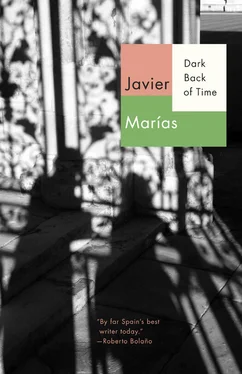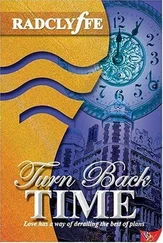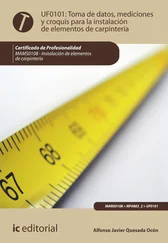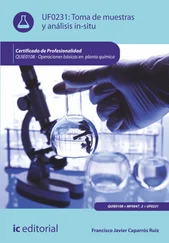It’s easy to guess that I immediately phoned Ian to persuade him, if necessary, to take my side, and I must say with gratitude that though he was in an ideal position to demand some compensation or perquisite from me in return for the endorsement that had been requested of him — season tickets for the bullfights at San Isidro, a leading role in a future novel, a guided visit to Madrid’s most vice-ridden neighborhoods, the publication of a pitiless attack on some rival professor — he did not. Once again he gave the impression that everything related to this book was, for him, a pleasant detour from his routine and thus a great diversion. But though he didn’t ask me for anything in exchange (which attests to his good faith) he did take advantage of the situation to spend a little time frightening and alarming me (which attests to his malice, but almost anyone would have done the same in his place). The British libel or anti-defamation laws, like all British laws, are overly governed by precedent and are therefore too broad and vague to allow anyone ever to feel safe. All it would take was for someone’s circle of acquaintances — for example, the students or colleagues of a professor — to believe they recognized that person in a character in a novel “with resultant hatred, disdain, discredit or derision,” and the real individual would be able to file suit against the book’s author and publishing house and have the suit accepted for consideration. “But how can that be avoided when it depends on the way readers read the book and not on the way the writer wrote it? Any lunatic can believe anything he wants, can’t he? Any paranoid could recognize himself, couldn’t he?” I was thinking of the woman who had offered to be my cleaning lady in a poetical telegram, had given me orders over the telephone, and had seen herself portrayed in a butler or an elevator. “There’s no way around it,” Ian Michael answered, well pleased with the peculiarity of his country’s laws, “there’s nothing to be done.” “What then?” I said, seeing my book banned forever in England. “How can it ever be known if the arbitrary identification has caused hatred or derision? I don’t see how,” I insisted. “It can’t be known with any certainty, since that depends, above all, on the perception of the injured party,” Ian answered, adding very smugly, “so there’s nothing to be done.” The term “injured party” was not at all humorous to me. “What then?” I asked again, this time with more curiosity than hope. “Then we must study the real possibility that those colleagues whom Oxford readers might possibly believe they recognize, with resultant hatred, discredit, derision or disdain, may institute litigation against you, their injurer.” He paused, to give greater drama to the results of his study, and it bothered me that he had called me their “injurer” on no evidence whatsoever. “I’ve talked it over with Eric,” he said, “and we agree on the main thing: we don’t believe any colleague would do any such thing, with one exception,” and here he mentioned a name, “who may perhaps believe he sees himself portrayed in the character named Leigh-Peele. It’s not that other people won’t think they see themselves in other characters, we’re all vain; even I think I recognize something of myself in the Irishman Aidan Kavanagh, though I’ve never displayed my armpits in public the way he does,” and here he couldn’t help letting out a quick laugh, remembering no doubt the scene in the novel when Aidan Kavanagh, wearing a Nile green vest over a strange sleeveless shirt, is dancing wildly in a discotheque and, throwing up his arms, exposes the two bushy tufts of his hirsute underarms, to the narrator’s shock and horror. “None of the others is rich enough to litigate,” he went on, “but he’s just inherited some money, we don’t yet know how much, from some distant, unmarried relatives (maybe church people, we’ll soon find out how much it is), and he could be tempted to do so. So you’d best take that character out of the English version, after all he’s very incidental, you only spend a paragraph on him, or you could at least change the name to avoid giving rise to a possible false association. And it wouldn’t hurt if you included a protectory preface like the one Masterman wrote some time ago.” I didn’t know who Masterman was, nor did I want to know just then. “I’ll send it to you. As far as I’m concerned, I’ll write to Harvill with my verdict and then I think they’ll consider themselves legally authorized for publication. You needn’t worry.”
Some time later, in May, Ian kindly sent me a copy of his letter to Mr. Guido Waldman of Harvill. He pointed out that neither the Spanish nor the French edition of the book described it as a roman à clef , and that if the English edition did not present or promote it as such he saw no reason for concern. He noted the advantage of eliminating Leigh-Peele and did not refrain from adding that no one could prevent readers in Oxford from making mistaken identifications, “but that is as much a problem for Iris Murdoch, A. N. Wilson, Colin Dexter, Evelyn Waugh, in the past, or any novelist who uses Oxford as a setting, as for Javier Marías.” He enclosed for Harvill, and for me as well, Masterman’s famous defensive preface, so long that, to tell the truth, I was too lazy to read it and never did. The letter concluded with a decorative phrase which Harvill could, if they liked, cite on the back cover or inside flap of their edition and attribute to David Serafin, which is the pseudonym, no longer at all secret, by which Ian Michael signs his detective novels about Inspector Bernal.
And so Todas las almas at last came out in England in 1992, under the natural title of All Souls and with the incidental character of Dr. Leigh-Peele transformed into “Dr. Leigh-Justice” in vague memory of the English supporting actor of my childhood, James Robertson Justice; there’s been too much deeply resented censorship for a Spanish author to be prepared, today, to eliminate passages from a book, and for the same reason I refused to pay attention to a discreet suggestion about a couple of minimal pontifical wisecracks — it particularly pains me to renounce a joke. As for the protectory preface, I did no more than add, at the beginning, an “Author’s Note” similar to the one that appears in the final credits of movies, though I fear that, if read closely, it incorporated an ironic internal contradiction and therefore said something different than what was and is initially understood. It went like this, “Given that both the author and the narrator of this novel spent two years in the same post at Oxford University, it may not be out of order for the former to take the floor a moment before yielding it, until the end, to the latter, to say that any resemblance between any of the characters in All Souls (including the narrator, excluding ‘John Gawsworth’) and any person living or dead (including the author, excluding Terence Ian Fytton Armstrong) is pure coincidence, and the same can be said with respect to the story, the anecdotes and the action. The Author.” The English wording was slightly different, but I believe that neither the translator nor the publishers noticed the contradiction, which went tranquilly to the presses. Amid the growing confusion between reality and invention, the translator, Margaret Jull Costa, to whom I owe so much, noticed the lines from Lawrence Durrell that I cited in All Souls and have also cited here, about the dazzling friend of his youth, John Gawsworth, and they struck her as so implausible or overly ben trovate that she thought they were apocryphal and coined by me; fortunately a residual trace of doubt led her to consult me, and thus she was able to cite verbatim from Durrell’s Spirit of Place instead of laboriously translating from Spanish to English the sentences I had previously translated from that language to my own.
Читать дальше












